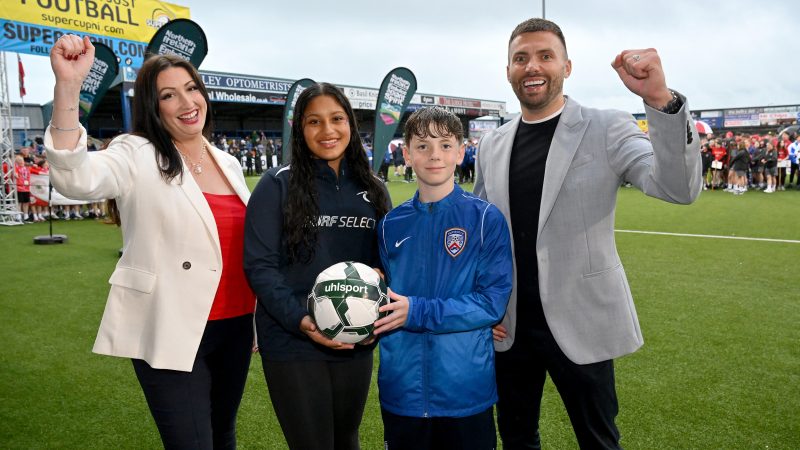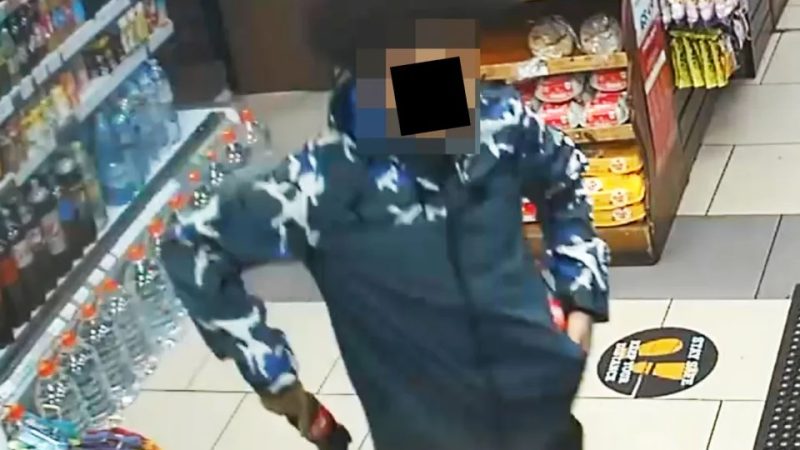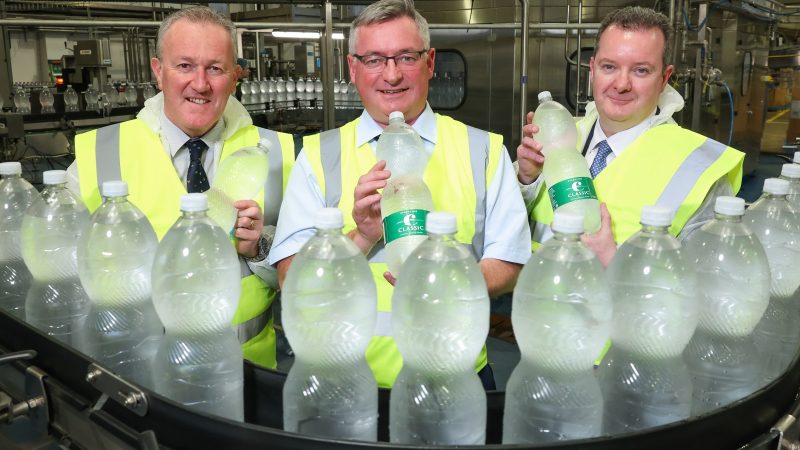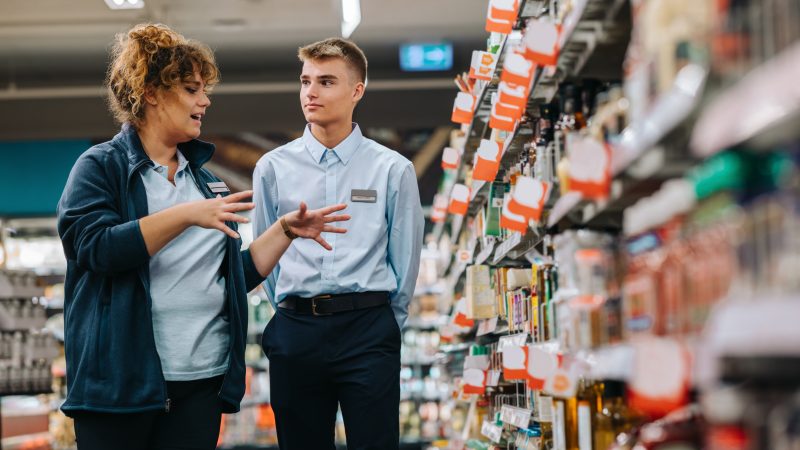Hats off to the retailers who stepped up: former NIRC director Aodhán Connolly on a decade in retail

As former director of Northern Ireland Retail Consortium Aodhán Connolly heads for Europe to lead the Brussels office of the Stormont Executive, he reflects on how Northern Ireland’s retail sector has weathered the storms of his time in the role.
Aodhán Connolly says it’s been a privilege to helm the Northern Ireland Retail Consortium over the last 10 years – but admits it’s been far from peaceful.
Now heading to the continent to take up the role of director at the Brussels Office of the Stormont Executive, he runs through the rollercoaster of landmark moments since he took up the reins at NIRC back in 2012.
From Large Retailer Levy to online shopping, and from the childrenswear guidelines to the arrival of the pandemic, there is no shortage of landmark moments in his 10-year journey.
“It’s been a complete Groundhog Day every time we talk about business rates,” he admits.
“Ten years ago when I started at NIRC we were talking about how the business rate system was inequitable towards retailers, and it still is. We’ve an antiquated system of rates that is no use to man nor beast and actually stifles investment.
“As well as that, we had things like the horsemeat scandal in 2012 and those were long weeks, working to reassure the public. But these last few years have been taken up by Brexit and the Protocol and Covid, and at the end of it the war in Ukraine.
“But as anyone who knows me will tell you, I’m a bit of a workaholic anyway. It’s been one of the most wonderful experiences of my life, being able to effect real tangible change, not just for the retail industry but for households and consumers across Northern Ireland – that’s been a real privilege.”
Skill set
Surprisingly, he had no experience of retail when he started in the role.
“I had lots of experience in hospitality, working in restaurants and bars, going to Unite, and there’s a similar skill set when it comes to everything from using POS to dealing with customers,” he says.
“One of the things I did with the Retail Consortium was spending a lot of time in the shops and talking to people other than just managers to try and see what the experience of the employees was. The industry is only as strong as the people working in it and that was very important.
“I was advising the Retail Consortium for a couple of years when I was working for Chambre Public Affairs and then in August 8th 2012, I joined the Retail Consortium.
“It was strange because there had been a British Retail Consortium and a Scottish Retail Consortium for many years but there hadn’t been one in Northern Ireland.
“At that stage there was a lot of legislation that was coming through as the Assembly was flexing its legislative muscle and that meant we were seeing things that could affect retaiL. The biggest of those was the Large Retailer Levy, and really that was one of the reasons the Retail Consortium was set up, to deal with that levy.”
Strong sector
As something of an unexpected legacy of the Troubles, Northern Ireland has always had a strong independent retail offer, Aodhán says.
“You’ve got to remember that other than Boots and M&S, the major grocers really didn’t come in until after the Good Friday Agreement and we were a growth market. In fact, we’re still not at saturation point in Northern Ireland – there are still places where you have to travel quite a while to get a good grocery offer,” he says.
“We were seeing changes in consumer behaviour – we were really starting to see Northern Ireland catching up with things like online where we were behind.
“I started advising the British Retail Consortium in 2010/2011 and we were still well behind the rest of the UK then.
“But what we saw that Christmas 2012, especially January 2013, was this huge spike in online and mobile click, and that was quite simply because one, there was a roll out of broadbands and internet services, but more importantly it seems that every man, woman and their goat got a smartphone and suddenly it was more accessible for people to shop around.
“That’s been good and bad, depending on how you look at things. What we’ve seen is economic Darwinism in the fact that those retailers, whether independent or multiples, who weathered the storms, that recovery after the 2008 crash and the problems we’ve had after these last five years or so – it’s the people that can adapt but adapt without losing their USP have been those who have been the most successful.”
Pandemic challenge
The pandemic has probably been one of the biggest challenges Northern Ireland’s retail sector has ever faced, and Aodhán pays tribute to the way in which staff stepped up.
“They say you can tell the mettle of a man or a woman by how they act over a crisis, and I think the fact that all of the retailers stepped up during Covid has been… As far as getting deliveries for vulnerable people, even some of the small franchisee retailers were providing delivery services and looking in on the neighbours, that sort of stepping up and really delivering for the community and working together,” he says.
“I was on many, many calls with the Northern Ireland Executive with different ministers, not only as far as keeping our customers safe but keeping shelves full and explaining to people that there was no need to panic buy.
“But the real heroes were the staff who went in day and daily , the essential workers, should that be from the warehouses right through to front of house staff. I tip my hat to them.
“Over Covid and then with the Protocol coming in, retailers and logistics worked really hard together.”
Careless talk
One thing he cautions against that has come to the fore over the past couple of years is the danger of careless talk.
“There were people saying that grocery supply chains were within five days of collapse over Covid, then they said the same over the Protocol and then they said the same over the Ukraine stuff and the P&O stuff,” he says.
“And to be honest, one of the biggest lessons that I would say to anyone is stick with the facts, do not scaremonger and realise that your words have consequences.
“That’s something that I’ve learned through bitter experience over the 10 years. People who have a public platform have a responsibility and that’s hugely important.”
Aodhán says he is still amused to see himself labelled as a Brexit expert.
“The BBC had a headline about me taking a new job and they called me a Brexit expert, which is wonderful and I’m very flattered,” he says.
“But Brexit and the Protocol is not one monolithic homogeneous thing. Customs is a many tentacled thing, as is SPS. I think that’s one of the things, should it be on the Protocol, should it be on Covid, should it be on supply chains in general, there are a lot of people who oversimplify things, whereas my understanding as far as what I know is I know some of it, but there’s a helluva lot more for me to learn.”
Frictionless trade
While Brexit is a contentious subject, what all political parties are agreed upon is the need for frictionless trade between Great Britain and Northern Ireland, he says.
“I think one of the things the Protocol did that I’ll be eternally grateful for was it gave me the chance to convene the Northern Ireland Business Brexit Working Group, and it was one of the privileges of my life to be able to work with those members, people like Kirsty McManus from the IOD, Stephen Kelly from Manufacturing NI, Stuart Anderson from the NI Chamber and Roger Pollen from the FSB,” he says.
“If you’d told me five years ago that I’d be standing shoulder to shoulder with the UFU and the NI Food and Drink Association when we’re usually taking potshots at each other, I wouldn’t have believed you.
“But we built up some trust, we built up some common goals and a vision of where we wanted to get to and most of all we built up some friendships.
“Personally, if there’s one good thing that came out of all those debates it s the friendships and the business groups working together in a way that never had happened before, and the fact that that is going to continue on with Stuart Anderson as the convener after I’ve left is a great comfort to me.
“I set it up in 2019 because the narrative in Westminster and in the EU was that Northern Ireland was sorted under the Protocol. The group came together to try and get amendments and it was the first time in about 14 years that all five of the major political parties agreed on amendments.
Working together
“Now it didn’t pass, but that’s not the reason for the amendments – the reason of the amendments was to get a debate, and the fact that that group has met with vice presidents and presidents, foreign ministers and has been quoted by different people… We even heard that some of the leaders at the G7 were mentioning some of the work that we’d done on the Protocol, like Biden and Merkel, so you can’t get much more of an example of the strength of people working together than that.”
As for the future health of Northern Ireland’s high street, Aodhán points out that the most successful high streets across the world have been people-based – “It’s about destination retailing, it’s about getting people to spend their time as well as their money.
“For some places it’s a high street that is vibrant at night with offices and a good hospitality and retail mixture.
“For other areas it’s because they have things like people living over the shops which creates a very strong community basis, but as well as that you’ve got ready-made footfall.
“But to do that there needs to be capital investment and there needs to be facilities, and those facilities need to include things like doctors’ surgeries and schools and other things that are needed to make it a community, rather than just a place that you go, as my mum would say, for your messages.”







